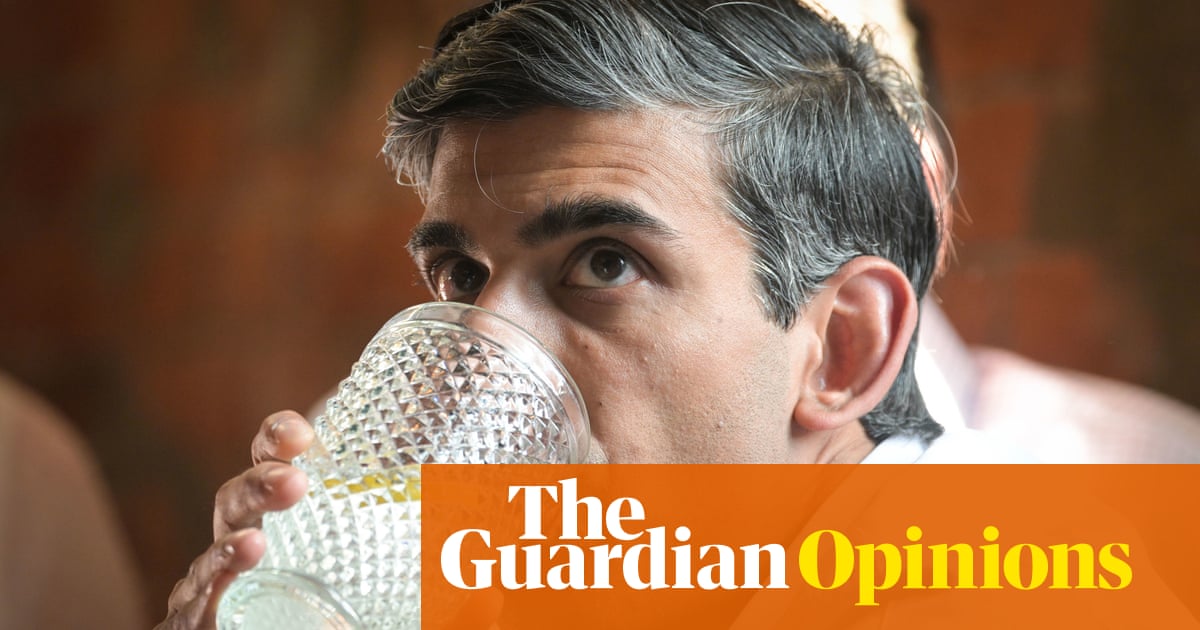
During the furore about who picked up the bill for the lavish makeover of the prime minister’s flat, the chancellor’s people made a big thing of declaring that there was no risk of Rishi Sunak generating a stink such as wallpapergate. The Treasury released a statement pointedly letting it be known that Mr Sunak had paid for the refurbishment of his family quarters in Downing Street from his own deep pockets. Shortly afterwards, an admiring Tory MP chuckled to me: “Rishi is rich enough to buy his wallpaper himself.”
After the many tawdry episodes associated with Boris Johnson, the idea that his next-door neighbour was scandal-free recommended Mr Sunak to Tory MPs as their next leader. The contrast between the two men – a cash-grubbing prime minister splattered with sleaze versus a chancellor advertising himself as the squeaky-clean, family man – also made Mr Sunak the more attractive figure to voters.
Although that was only a short time ago, it seems like ancient history. That was before the public was outraged to learn that his wife, Akshata Murty, the daughter of an Indian billionaire, has been using non-domicile status to avoid paying UK taxes on her massive overseas earnings. It transpires that the chancellor is truly a believer in lower taxes – so long as they are for his own family.
The first response to the uproar from Mr Sunak, his wife and their apologists was to protest that she was breaking no laws by exploiting this tax break for the mega-rich. That was revealing about them in itself, because it so spectacularly failed to understand why people would be angry even if the arrangement was legal. Some of the public may resent the great wealth of the Sunaks, some may admire it, some may care a lot that they enjoy stratospheric riches way beyond the dreams of most Britons and some may care not a bit. Nearly all of the public will have had a reasonable expectation that the Sunaks followed the tax rules that apply to the typical voter.
The chancellor’s family’s fortune being shielded from his tax collectors would smell rotten in any circumstances. The current context made it absolutely toxic. He is ratcheting up the taxes on tens of millions of Britons with modest incomes who have no choice but to pay up. He responded to criticism of his recent spring statement by arguing that the Treasury did not have the funds to do much to alleviate the cost of living crunch on poorer households. Only for everyone to learn that there would be more money in the kitty if the chancellor’s wife paid tax in the way most people do. It was the morality, stupid. It was the inequity. It was the unfairness.
For an Instagram politician who is an obsessive curator of his personal image, it took the chancellor a remarkably long time to grasp how untenable this was. The Sunaks initially even tried to persuade us that they deserved not to be the target of fury, but objects of sympathy. You needed your smallest violin to accompany his lament that the couple were the victims of a “political hit job”. In one notably self-pitying interview, the chancellor went so far as to claim that his opponents were attempting “to smear my wife” in order to “get at me”. It is true that he has enemies, the biggest of whom is not sitting in a newspaper office or on the opposition benches, but living next door at Number 10. Regardless of the origins of the leak and the motives of the leaker, there is no “smear” in discussing whether it is right for the chancellor’s wife to take advantage of a tax scheme unavailable to the vast majority of Britons.
The storm had been raging for 48 hours before Mr Sunak fully grasped how career-endangering this had become. The couple issued a statement in the name of his wife that made a nonsense of their previous assertions about why she has not been paying UK taxes on her overseas earnings. The statement announced she would be doing so in future, claiming now to “understand and appreciate the British sense of fairness”. That was the minimum necessary to try to contain the damage to her husband’s reputation before it was irreparably broken. It had been striking how very few Conservative MPs were willing to put themselves in front of a microphone to defend him. A growing number of Tories had been privately saying that Mr Sunak could not remain at the Treasury if his wife didn’t change her tax status.
The chancellor will be hoping that they have retreated to a position that is more sustainable, but there are still outstanding questions about the family’s tax affairs which the media and the opposition will continue to press. There has been no promise to pay the very large sums, which some estimates put at £20m, she has saved from the arrangement over the past decade. It will be legitimately asked: if it is right and fair that she pays UK tax on her overseas income in future, isn’t it right and fair that she makes good on the tax swerved in the past?
Questions will also persist about Mr Sunak’s character and judgment. It will be even more of an issue whether a super-rich chancellor can be the man to persuade less affluent Britons that they will have to endure hard times. Even some Tories raised their eyebrows when the Sunaks made a donation of more than £100,000 to his old school, Winchester College, at a time when he is denying state schools the resources they say they need. Asked recently to name the price of a loaf, he channelled Marie Antoinette when he answered: “We all have different breads in our house.” Houses would have been a more accurate answer, because they own at least four properties in the UK and abroad as well as having the use of two government residences, the Downing Street flat and Dorneywood in Buckinghamshire. Colleagues have boggled that the Sunaks judged this to be the right time to be spending loads of money on a swimming pool, tennis court and gym complex at their manor house in his Yorkshire constituency. It’s maybe not the best look for a chancellor jacking up taxes amid the most severe squeeze on real incomes in decades.
There’s much debate among Tories about why the chancellor failed to appreciate that his wife’s tax position was bound to cause uproar. Is it because he is so rich or because his political instincts are so poor that he could not see how this would look through the eyes of the electorate? Did he understand that it would look terrible, but foolishly assumed that it could be kept hidden? Did he expect it to be revealed one day, but gambled that it wouldn’t trigger an outcry? Did he anticipate an outcry, but reckoned he could brazen it out? Was he naive, idiotic, complacent, cavalier or arrogant?
His popularity went up like a rocket during the pandemic. Now it is coming down like a stick. His approval ratings, once the envy of every other politician at Westminster, were already tumbling. In our latest Opinium poll, they have fallen further to a record low score of minus 15. Among Tory members, the most authoritative survey of their views of ministers suggests that he has plummeted from top of their pops to third from bottom.
This will be greeted with the salty tears of a grinning crocodile next door at Number 10. In terms of the jostling for power within the Tory hierarchy, anything that hurts the chancellor is regarded as helpful to the prime minister. The self-inflicted wounding of the man who was, until very recently, his likeliest successor will make Mr Johnson feel more secure in the premiership. Which also means that this is surely further bad news for the Tory party’s standing with the public.
The two most senior members of the government have now scandalised the country. Partygate came about because so many of the inhabitants of Number 10 thought that they were free to flout the Covid restrictions imposed on everyone else and were encouraged to behave atrociously by having a boss with a career history of shameless rule-breaking. A similar sense of entitlement led the chancellor and his wife to decide that there was nothing wrong with avoiding paying UK tax on a huge portion of their vast family income.
There’s a pattern to the behaviour of this government. Its leaders demand painful sacrifices of everyone else while claiming special privileges for themselves. There’s one rule for them. There’s another for the little people. That’s how they act because that’s how they think.
Andrew Rawnsley is Chief Political Commentator of the Observer












